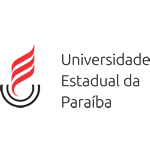
The project
This project was born out of the desire to strengthen the care and protection of children, families and populations from vaccine-preventable diseases for a healthier and fuller life.
The vaccine observatory is a project dedicated to analyzing the spatial distribution of vaccine coverage for vaccines recommended for children by Ministry of Health’s National Immunization Program in 5,570 municipalities in Brazil.
The complexity of contemporary life has revealed contradictions, where, on the one hand, we have scientific-technological advances in health and the scientific validation of individual and collective successes in vaccination in reducing morbidity and mortality in the world; and on the other, the coexistence of increased public mistrust of vaccines, different degrees of hesitation to the vaccine, drop in vaccination coverage and return of vaccine-preventable diseases in Brazil and in the world such as measles.
Aiming to contribute to the Ministry of Health’s National Immunization Program in understanding and coping with the decrease in vaccination coverage since 2015, the vaccine observatory is innovative because it seeks to understand the relationship between vaccination coverage and socioeconomic, environmental and health factors, through spatial analysis and georeferencing.
This project is a realization of the Graduate Program Strictu Sensu in Collective Health at the Catholic University of Santos (UNISANTOS), a community higher education institution whose mission is to train humanistic citizens, build scientific knowledge with a view to transforming reality and reducing social injustice, through the principles of solidarity, justice, ethics and respect for human rights.


 Haemophilus Vaccine
Haemophilus Vaccine
 Hepatitis B Vaccine
Hepatitis B Vaccine
 Hepatitis A Vaccine
Hepatitis A Vaccine



